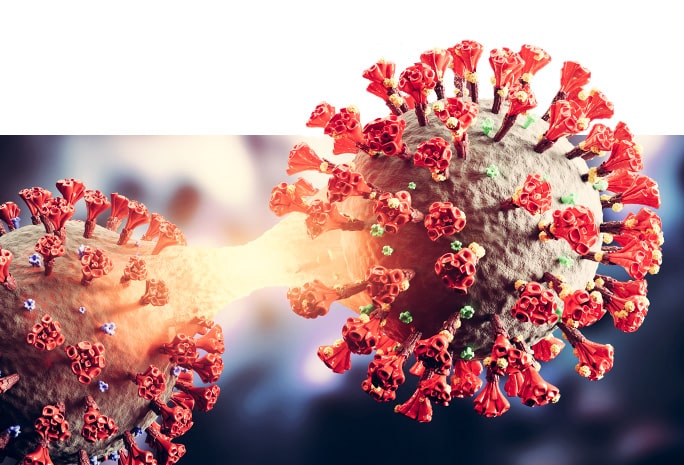
Coronaviruses are a group of RNA viruses that belong to the Coronaviridae family. This family is divided into four genera, among which are the Betacoronaviruses, the genus to which SARS-CoV-2, the causal agent of COVID-19, belongs.
Betacoronaviruses only infect mammals and are normally responsible for mild upper respiratory tract infections in humans and gastroenteritis in animals. In the case of infections caused by SARS-CoV-2, highly variable effects have been observed, which are due to multiple factors that are still under investigation.
SARS-CoV-2 is approximately 50 to 200 nm in diameter, and its genome is single-stranded positive-sense RNA, which is around thirty thousand nucleotides long. The SARS-CoV-2 genome has four genes for the structural proteins characteristic of coronaviruses that are designated with the letters S, E, M and N, in addition, it has the ORF genes that encode non-structural proteins such as enzymes that act during their reproductive cycle of the virus.
Because SARS-CoV-2 is an RNA virus, its detection and identification is carried out using a molecular technique called real-time RT-PCR, which allows the virus’s RNA to be transformed into DNA through a reverse transcription process. Subsequently, the DNA obtained enters the amplification process by means of real-time PCR. As new copies of viral DNA are made, the markers attach to the DNA strands and emit a fluorescence that is captured and measured by a computer with specific software. When the fluorescence exceeds a certain level, the presence of the virus is confirmed.
Initially, the markers designed for the detection of SARS-CoV-2 were directed at the N gene. Subsequently, new diagnostic protocols were developed, which in addition to targeting the N gene, also target other genes, such as E, S or RdRp, with the aim of increasing sensitivity and specificity, as well as avoiding false negative results, due to the appearance of mutations.
Real-time RT-PCR is the most accurate technique to detect the coronavirus. It is very sensitive and precise, offering a reliable diagnosis in just three hours.
We provide a professional service focused on guaranteeing quality work for our national and international clients.
Do you need a professional and efficient service? Ask us q for the analysis you need. Is quick and easy.
Iberogen is a state-of-the-art laboratory capable of handling any type of project.